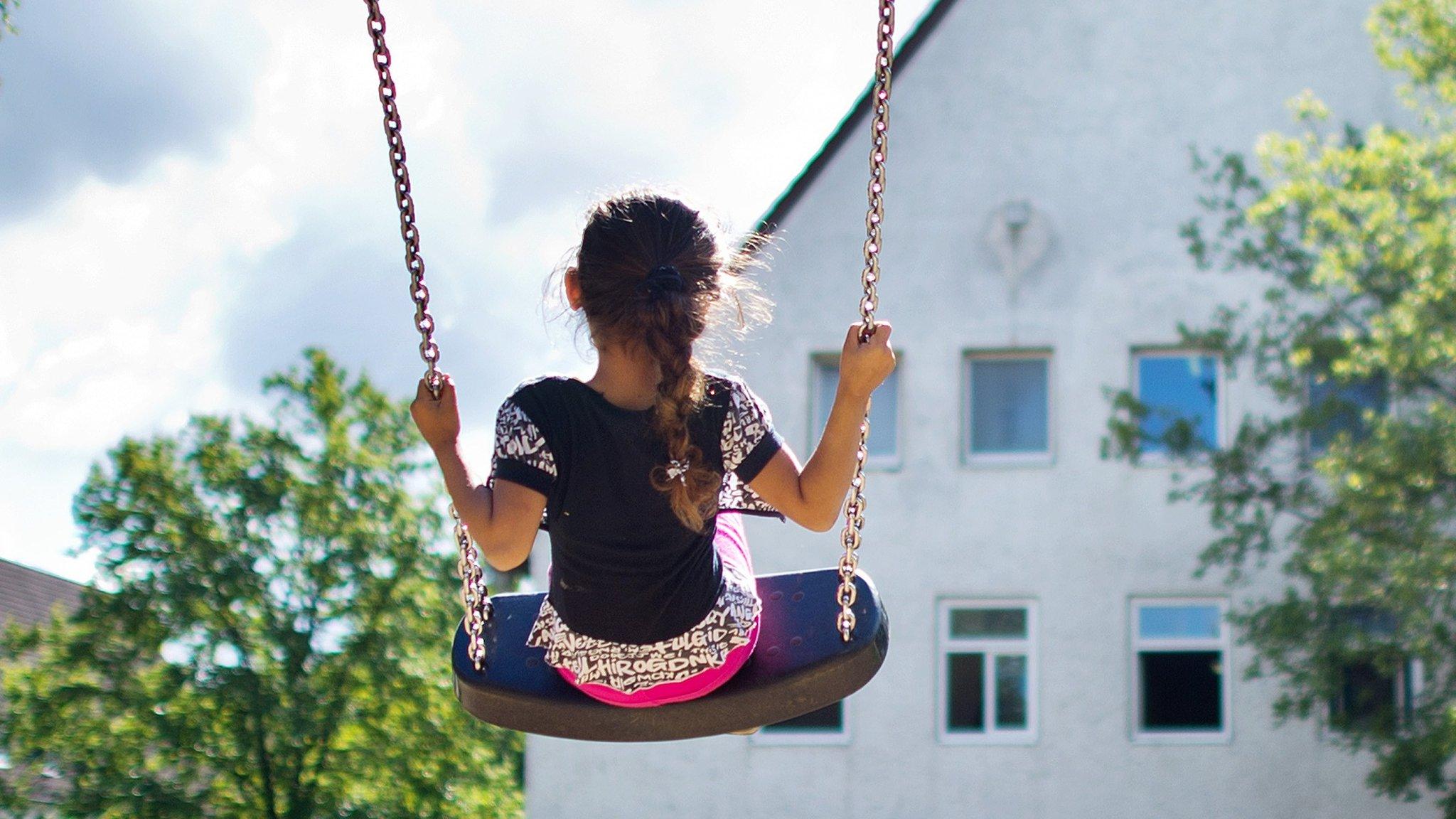'They're my mum and dad, not terrorists'
- Published
Rebecca says that on seeing her foster parents are Muslim, one friend said, 'I bet they have bombs in their house'.
Since moving in with Pakistani Muslim foster parents, Rebecca Brown - who is white British - has had school friends ask if she lives with terrorists, because of their religion. She wants people to know they are just like any other family.
"I am a part of the family," Rebecca explains over a family dinner with Shanaz and Muhammad Arshad, her foster parents.
Rebecca, who is an atheist, has lived with the Muslim family since the age of 12.
Now 18, she has chosen to continue living with them.
She is keen to make her voice heard only weeks after a case involving a five-year-old Christian girl, who was reportedly left distressed after being placed with Muslim foster carers, hit the headlines.
A family court judge later ruled there were no concerns about the girl's welfare.
Rebecca tells the BBC's Victoria Derbyshire programme without Shanaz and Muhammad she "wouldn't have anyone else to call family".
She has referred to them as "mum and dad" since the third month of living together.
She has learned basic Urdu to become closer to them, and has travelled with the family to Pakistan - something that stirred opinions among school friends.
One told her she was "living with terrorists", she says.
Others have talked about her family having "explosives".
Rebecca remembers being perplexed. "I live in a family as anyone else would."
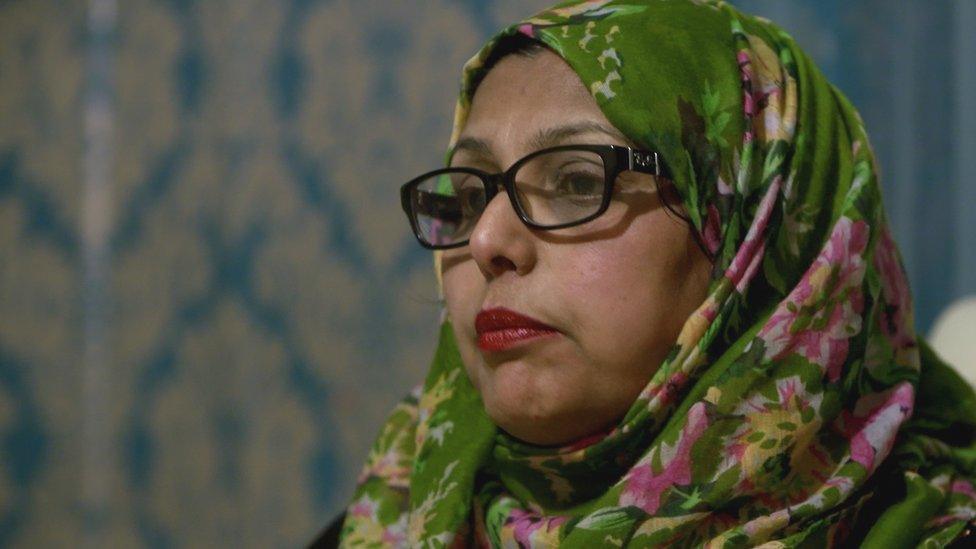
Shanaz is clear that fostering "isn't about imposing religion"
Shanaz says she has also been hurt by comments.
"People think the girl will lose her identity. People question, 'Is she going to become one of you? Is she going to have an arranged marriage?'
"We are trying to give this child the best care in the world."
The family is also fostering an Afghan boy and Kenyan girl - and Shanaz is keen to explain that Rebecca has been able to maintain "her own identity".
"Rebecca is going to be Rebecca," she says.
"Fostering isn't about imposing religion. Foster carers are not there to remould them."
She says she has spoken about Islam with Rebecca but "never imposed it" on her.
"We celebrate every culture and religion in this household. We celebrate Christmas because it's a holiday and festival time."
'Inspired by Christianity'
The government says it does not have statistics on how many interracial placements there are.
But it is estimated that 3,000 Muslim children are placed into foster care each year.
Krish Kandiah, a Christian theologian, has fostered children from a broad range of religious and cultural backgrounds.
"Reading the Bible, it has so much to say about vulnerable kids in our society," he says, explaining his choice to foster.
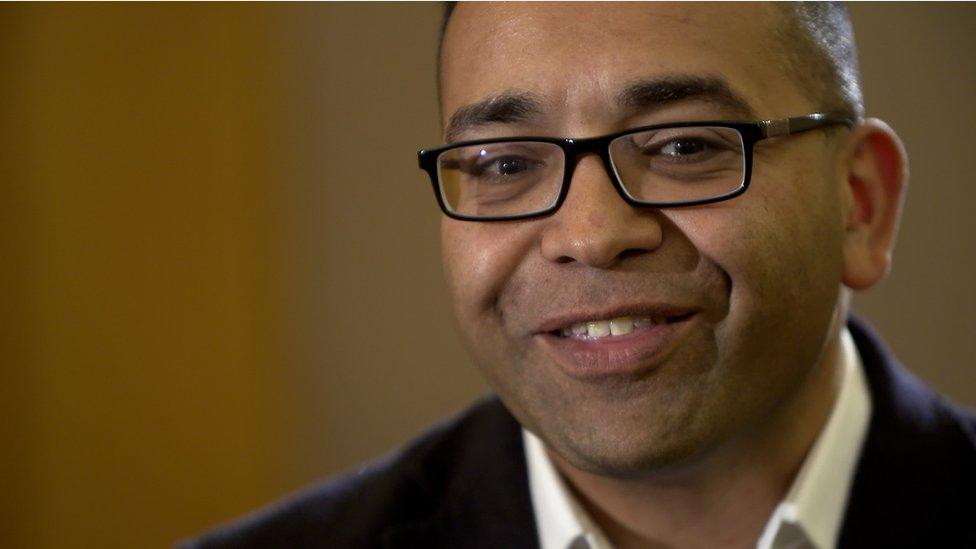
Christian Krish Kandiah says he has made a Koran available to Muslim children in his care
He dismisses the idea that having Christianity as a key motivator for becoming a foster parent is in conflict with the role, which requires children's religious choices to be respected.
"When Muslim kids have come into my care I have asked how we can help, how we should honour that.
"We've had Halal meat, made a Koran available. If my kid was in care, I'd want their faith to be respected."
He says that there have been instances where people are "very critical" of foster carers.
But, he adds, "I'd tell critics to step up and foster themselves".
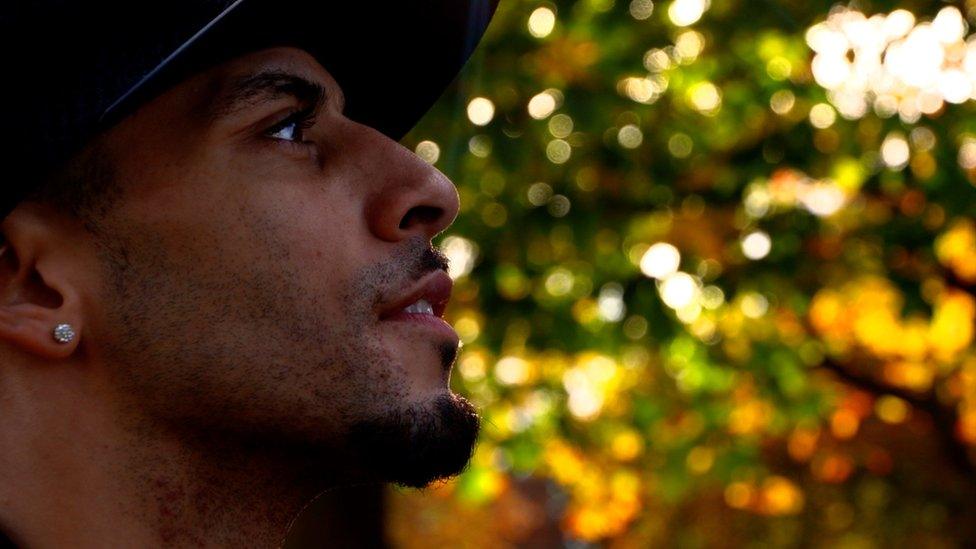
Jerome says his former foster parents did not take his identity into account
Not all placements are a success. Jerome Harvey, who's 26, said his identity was overlooked by a Muslim family he lived with at the age of four.
"The first family I lived with were Indian Muslim, and it was just a massive culture shock," he says.
"The first thing that stood out to me was the food. We didn't recognise it, [but] they forced us to eat it.
"They lost us," he adds. "A carer's job is to find you, but they lost us because they weren't interested in who we were before we got there.
"We didn't celebrate Christmas."
He says the family did not introduce him to their culture either.
"If anything they damaged us further. They excluded us from who they were.
"We'd watch them pray but not really understand why they were doing it, or what it is, and just copy."
Cultural needs
Kevin Williams, chief executive of the charity Fostering Network, says over the last 20 years there has been much greater understanding of the need to support a foster child's "culture and beliefs".
Foster parents are trained to ensure they are prepared to look after children of all backgrounds, he adds, with social workers acting as a safeguard.
Mr Williams is clear that foster parents should "not be forcing a religion onto a child", but that - if they are religious - they can talk to the child about this, as it is important for them to be made aware of "different experiences".
The charity estimates that there is currently a shortage of 8,000 foster carers across the UK.
"We want children to be matched as closely as possible with a family - including religious and cultural needs - but this is not always possible," Mr Williams explains.
He hopes more Muslim families will want to foster in future so that they can care for children of all beliefs.
Rebecca asks people not to take a negative view of Muslim foster parents.
"Don't judge a book by its cover. You can't believe everything that's on the news, or what's been said about Islam," she says.
Watch the Victoria Derbyshire programme on weekdays between 09:00 and 11:00 on BBC Two and the BBC News Channel.
- Published29 August 2017
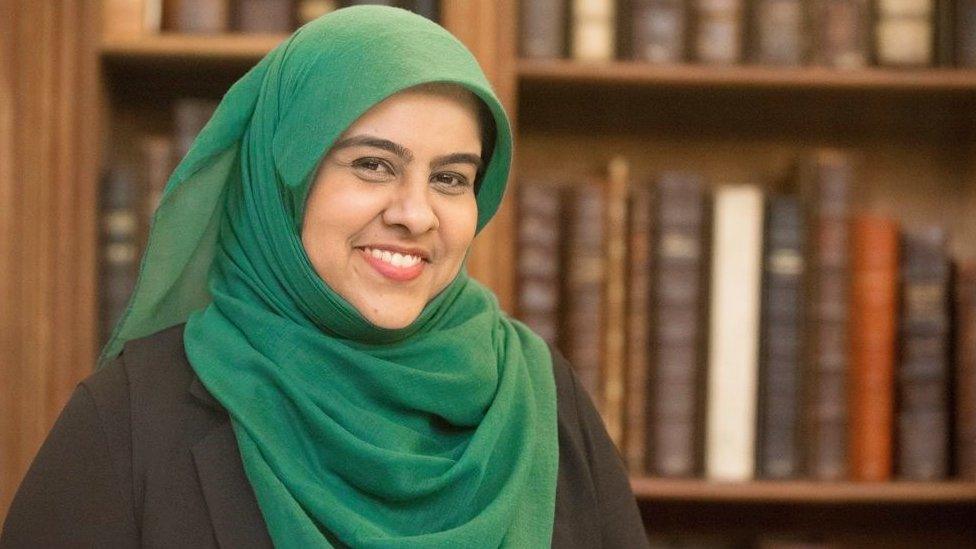
- Published30 August 2017
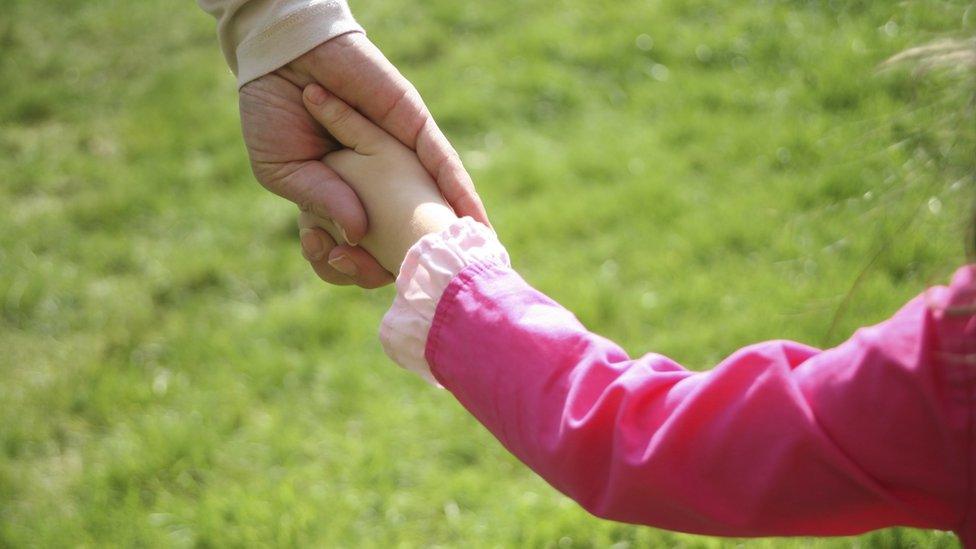
- Published30 August 2017
